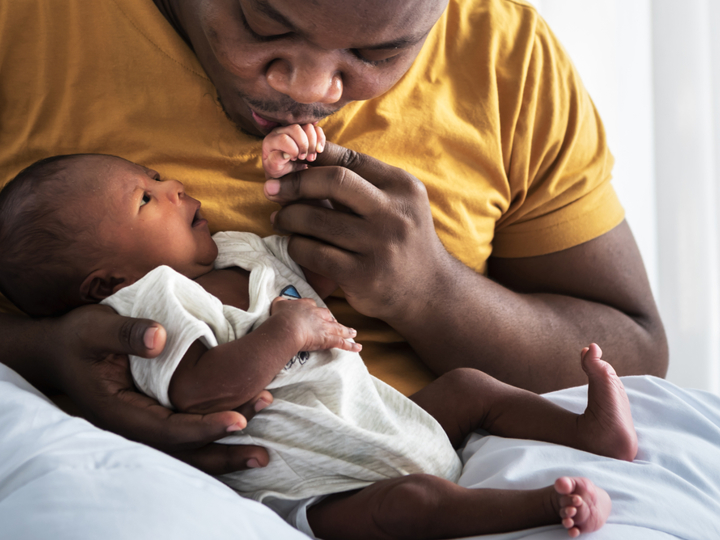Understanding your baby's poo
- 0-1 Years
- Peeing, pooing and toileting

Most parents who breastfeed worry if their newborn is getting enough to eat. One way to check is to keep track of nappy changes. The contents of your baby's nappy will change during the first few days and weeks. These changes can help you to understand if feeding is going well.
Explore the topics on this page:
Your baby's first poo
Within the first 24 to 48 hours your baby should do a poo which is sticky and green and black in colour. This first poo is called meconium.
A few days after birth your baby’s poo will likely turn to a yellow or mustard colour.
Concerned about your baby's poo?
Your baby’s poo may vary from week to week. But if you notice your baby’s poo has become very watery, smelly or looks pale, speak to your health visitor or GP.
The effects of feeding on your baby's poo
How you feed your baby will also have an impact on their poo. Breastfed babies often have runny poo that doesn’t smell. Babies who are formula-fed have firmer, darker and more smelly poo.
Some formulas can cause your baby to have dark green poo. If you switch from breastfeeding to formula feeding this may also cause your baby’s poo to become darker.
Breastfed babies should be pooing at least twice a day for the first 6 weeks. Their poo should be at least the size of a £2 coin. Some babies may poo every time they are fed. After your baby reaches 6 weeks old, the frequency of their poos may slow down or the pattern may change.
Formula-fed babies may poo up to 5 times a day to begin with. This can decrease to once a day after a few months.
Is your baby constipated
You may notice your baby straining when doing a poo, or that they haven’t pooed for a few days. If your baby is still passing soft poo, they are not constipated. If your baby’s poo is hard, read our information on constipation in babies.
Need more specific support for your child?
If your child needs more help or has additional needs, you can visit our specific section for extra support.
Last reviewed: 1 November, 2023
